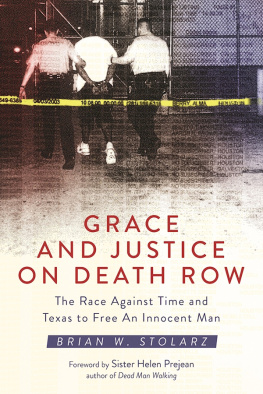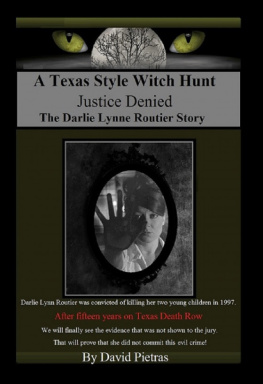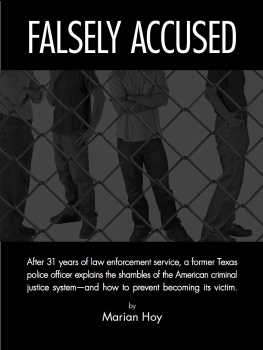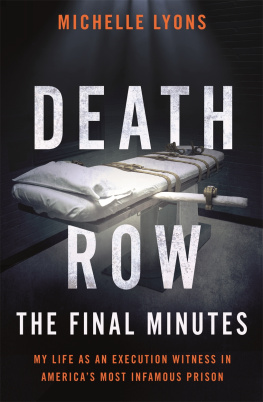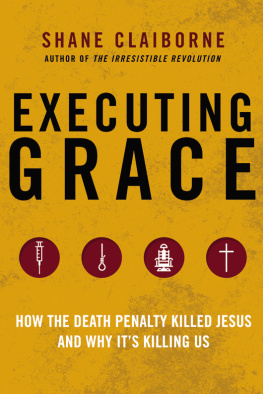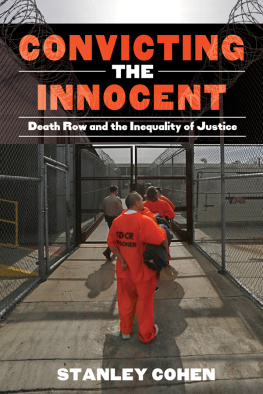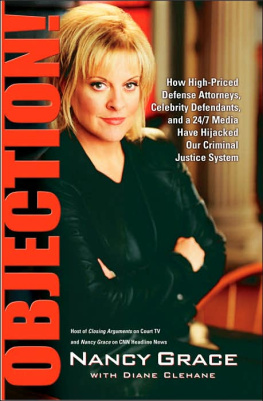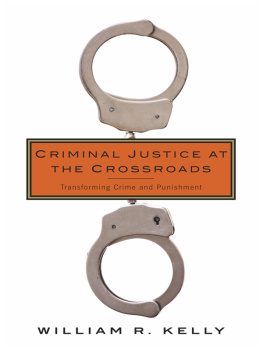Copyright 2016 by Brian W. Stolarz
All rights reserved. No part of this book may be reproduced in any manner without the express written consent of the publisher, except in the case of brief excerpts in critical reviews or articles. All inquiries should be addressed to Skyhorse Publishing, 307 West 36th Street, 11th Floor, New York, NY 10018.
Skyhorse Publishing books may be purchased in bulk at special discounts for sales promotion, corporate gifts, fund-raising, or educational purposes. Special editions can also be created to specifications. For details, contact the Special Sales Department, Skyhorse Publishing, 307 West 36th Street, 11th Floor, New York, NY 10018 or .
Skyhorse and Skyhorse Publishing are registered trademarks of Skyhorse Publishing, Inc., a Delaware corporation.
Visit our website at www.skyhorsepublishing.com.
10 9 8 7 6 5 4 3 2 1
Library of Congress Cataloging-in-Publication Data is available on file.
Cover design by Rain Saukas
Cover photo credit iStock
ISBN: 978-1-5107-1510-3
Ebook ISBN: 978-1-5107-1512-7
Printed in the United States of America
Table of Contents
For Anna and the kids
For those who advocate to change the criminal justice system
For Dewayne
Foreword
Its almost a shame that Brian W. Stolarz decided to name his book Grace and Justice on Death Row because its missing the word Faith in its title. And faith is the overriding fuel that fires this story. In many ways its a story weve heard many times before. A police officer is murdered. A man, in this case Alfred Dewayne Brown, is accused of the crime, arrested, tried, convicted, and sentenced to death. In walks Brian, a young, brash lawyer, a devout Catholic, and a believer in offering his services pro bono to the indigent when he can.
The reason he agrees to take Dewaynes case is revealed in the books opening:
I knew Alfred Dewayne Brown was stone-cold innocent the moment I met him. He was a twenty-five-year-old, soft-spoken gentle giant with a sixty-nine IQ living in the Polunsky unit of the Texas Department of Criminal Justice in Livingston, Texas, north of Houston. Polunsky is where Texas houses people before it kills them.
Now think about that for a moment. Youre introduced to someone youve never met before, and you can instantly determine whether hes innocent or guilty? Thats not hope nor trust; thats faith, pure and simple.
Another word missing from the books title is perseverance . As youll read, the work Brian and his team performed took place over eight years. Perhaps more telling is that when a critical piece of evidence is revealedalmost by accidentit still takes a grinding two years to free Dewayne. What drives Brian to persevere? Why does he devote so much of his time to Dewaynes case when he also has a full-time job at a large law firm, as well as a young family to care for? His ability to examine and explain his feelings and motives while telling us the details of the case is what makes this book so compelling. Yes, the story of an innocent man on death row who is freed has been told before, but its usually a dramatic recounting of conflicting evidence, or a story taken from the viewpoint of the accused. Rarely do we gain insight about what motivates his advocate and friend, the pro bono lawyer, and where they find their faith and perseverance.
Dewayne was just one of 263 prisoners currently on death row in Texas, one of 2,943 currently on death row in the United States. Brian, like me, is opposed to the death penalty and, like me, believes it will one day be rescinded, closing an open wound in the fabric of our society, even if it does leave an ugly scar. When you read Grace and Justice on Death Row and then realize how many other inmates have been exonerated from their accused crimes, I hope youll agree we simply can no longer put to death those who may later be found innocent.
Sister Helen Prejean, a Sister of St. Joseph, ministers to prisoners on death row, author of Dead Man Walking
PART I:
Introduction
Chapter 1:
Brooklyn BS Meter
I knew Alfred Dewayne Brown was stone-cold innocent the moment I met him. He was a 25-year-old, soft-spoken gentle giant with a sixty-nine IQ living in the Polunsky Unit of the Texas Department of Criminal Justice in Livingston, Texas, north of Houston. Polunsky is where Texas houses people before it kills them. In 2005 he had been sentenced to die for the murder of a police officer, and he had been living on death row pretty much ever since. I was working for K&L Gates, a high-powered mega-firm in Washington, D.C., longing for a case I could be passionate about. I had worked for a couple of years as a public defender for the Legal Aid Society in Brooklyn, New York. It was a steady parade of fallible, devious, and occasionally innocent people, most of whom were short on money and shorter on luck. I felt something at Legal Aidpassion for my work.
In and out of the precinct houses, holding cells, and courtrooms I developed a more than functional bullshit meter about people accused of breaking the law. I can usually spot a lie or a liar better than a polygraph operator. I dont mean to brag, but just this one time Ill quote the late Muhammad Ali, who said, It aint bragging if you can back it up. Im not bragging, Im just saying after one look, I had absolutely no doubtnonethat Alfred Dewayne Brown had not committed the heinous crime for which he had been convicted and for which Texas was going to kill him.
When I left the Polunsky Unit an hour later, I promised Dewayne I would do my best to get him out of there. I also tried both to fight back tears and to keep from being sick to my stomach. I was grateful for the chance to save his life but scared it might be too late. The gravity of the situation set in instantly. I did not go to graduate school to save livesthat is what doctors do. But now I was given the opportunity to save one, and I was determined to do it. In fact, it became my legal, personal, and religious mission to do so.
But I could not ward off the thought that I might one day travel to Texas, stand behind a glass window, and watch a group of my fellow citizens carry out a medical procedure to end his life against his will. I was sick thinking I might have to watch. I vowed to my wife that if I watched him die I would hang up my law license forever and go start a pizza parlor. I am from New Jersey, after all.
I had a lot of work to do. At the Houston airport a few hours later, I was waiting for my flight, lost in thought about just how much work it would be, when I was accosted by a friendly, toothpick-wielding woman offering free samples of her cuisine around the food court. Unable to resist, I ordered and devoured some of her best General Tsos chicken. I cracked open my fortune cookie. You love challenge, it said. I laughed and looked up to a ceiling painted with fake clouds. Was this some kind of divine-but-sick joke? I put the fortune in my wallet, where it remains to this day next to a picture of my three kids.
I know your initial reaction to all of this is to say, Yeah, sure, all the people in prison say they are innocent. Hell, even members of my own family didnt believe me when I came home from Texas and said he was innocent. Believe me, I would be the first one to tell you if he were guilty. Many of my current and former clients were, in fact, guilty of what they were charged with. But, in that one moment, that first time I met him, something rocketed through to the deepest part of me: he didnt commit this crime. I understand your hesitation. Maybe you have your own BS meter. Come along with me on this ride and you, too, will see what I saw and felt, what I feel. This man is what I believed him to be from the very second I saw himinnocent. And he would have died if there were no one to stand up for him.

